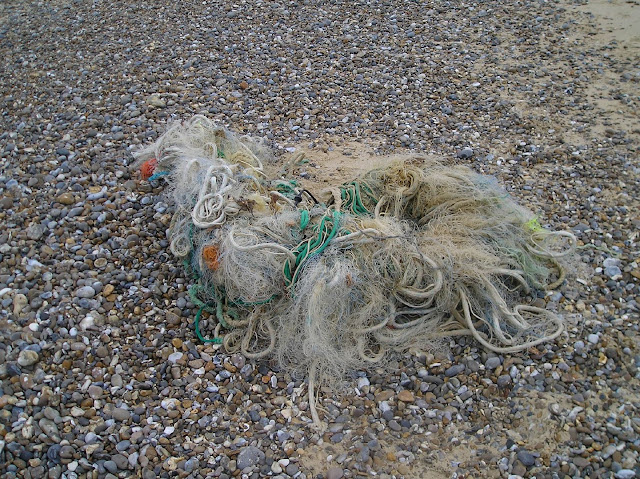The setting up of an EU-wide network for collecting and dismantling equipment no longer needed by the fishing and fish farming industries is a big step towards reducing plastic waste in the sea and in landfills.
Ghost fishing is what happens when huge nylon fishing nets sink to the ocean bed and trap fish and crustaceans that accumulate and rot inside them. An EU-funded project is attempting to tackle this grim kind of pollution by collecting used nets before they are discarded by fishing boats.
With partners in Norway, Lithuania and Hungary, the EUfir project is an offshoot of Nofir that was started in 2008 to recycle Norway’s fishing and fish farming equipment. “It’s a big problem for us in Norway,” says Øistein Aleksandersen, CEO of the company Nofir AS. “We will be collecting some 5 000 tonnes of discarded fishing equipment this year.”
The new project aims to expand the work done in Norway to the EU, although for the moment the consortium is concentrating on countries in the north – Iceland, the UK, the Netherlands and Denmark – principally because of the cost of transport. “It’s a very voluminous cargo,” says Aleksandersen.
The first step for EUfir was to map out and find the major suppliers of fishing equipment such as ports, waste facilities, fishermen and fish farmers. “We work through contact with suppliers,” Aleksandersen explains. “When they have material they can’t use anymore, we pick it up and shift it to Lithuania where it is dismantled before it goes to be recycled in Hungary and elsewhere.”
The long-term aim is to cover all EU countries, probably establishing recycling headquarters in a more central location, like Turkey. The project ends in 2015, and should help to considerably reduce the presence of plastic nets in the seas and in landfills.
More about the project HERE.
More about the eco-innovation HERE.
Ghost fishing is what happens when huge nylon fishing nets sink to the ocean bed and trap fish and crustaceans that accumulate and rot inside them. An EU-funded project is attempting to tackle this grim kind of pollution by collecting used nets before they are discarded by fishing boats.
With partners in Norway, Lithuania and Hungary, the EUfir project is an offshoot of Nofir that was started in 2008 to recycle Norway’s fishing and fish farming equipment. “It’s a big problem for us in Norway,” says Øistein Aleksandersen, CEO of the company Nofir AS. “We will be collecting some 5 000 tonnes of discarded fishing equipment this year.”
 |
| Image: Verity Cridland |
The first step for EUfir was to map out and find the major suppliers of fishing equipment such as ports, waste facilities, fishermen and fish farmers. “We work through contact with suppliers,” Aleksandersen explains. “When they have material they can’t use anymore, we pick it up and shift it to Lithuania where it is dismantled before it goes to be recycled in Hungary and elsewhere.”
The long-term aim is to cover all EU countries, probably establishing recycling headquarters in a more central location, like Turkey. The project ends in 2015, and should help to considerably reduce the presence of plastic nets in the seas and in landfills.
More about the project HERE.
More about the eco-innovation HERE.
The Aquaculturists
This blog is maintained by The Aquaculturists staff and is supported by the
magazine International Aquafeed which is published by Perendale Publishers Ltd
For additional daily news from aquaculture around the world: aquaculture-news

No comments:
Post a Comment